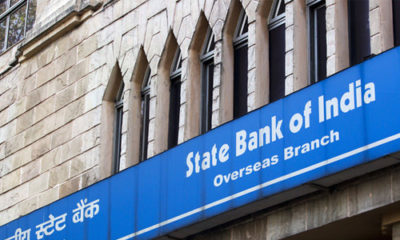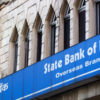Banking
Karnataka’s Financial Crackdown: Exposing Banking Irregularities or Ensuring Accountability?
The Karnataka government’s recent directive to withdraw all deposits from the State Bank of India (SBI) and Punjab National Bank (PNB) has sent ripples through the financial community. On August 14, the government ordered the closure of all accounts in these banks, affecting numerous departments, public sector units, and universities across the state. The order stemmed from unresolved disputes between the Karnataka Industrial Area Development Board (KIADB) and the two banks, which refused to return substantial deposits.
This unprecedented move has raised questions about the integrity of banking practices within these institutions. Deepak Shenoy, Founder and CEO of Capital Mind, shared his perspective on this development, suggesting that the government’s actions might be more than just a response to financial disputes. Shenoy’s take on the situation hints at a broader issue—an investigation into potentially shady banking practices that may have been swept under the rug.
Unveiling Potential Irregularities
Shenoy’s analysis of the situation suggests that the Karnataka government’s decision is not merely a reactionary measure but a strategic move to uncover possible irregularities. He pointed out that PNB allegedly failed to return a fixed deposit (FD) held by a government entity for over a decade, and SBI was accused of allowing a government FD to be used as collateral for a private party’s loan—resulting in the loss of public funds when the loan defaulted.
Karnataka govt tells all govt depts to shut down all deposits with SBI and pnb.
This is a good thing. Apparently PNB hasn't returned one fd for a decade and SBI allowed a govt fd to be pledged against a private partys loan and invoked it in default, so not paying back govt.
How… pic.twitter.com/uY8z27mMxW
— Deepak Shenoy (@deepakshenoy) August 15, 2024
These allegations are serious, and Shenoy’s comments highlight the potential for deeper issues within the banks’ handling of government funds. By ordering the withdrawal of all FDs, the government may be seeking to expose other questionable practices that could have otherwise remained hidden.
A Call for Proactive Action
Shenoy also emphasized that the banks should take proactive steps to resolve these issues. He suggested that returning all government deposits would be the best course of action for the banks if they want to maintain their reputations and avoid further legal complications. In his view, this would demonstrate transparency and ensure that no further discrepancies are found.
The banks, however, have remained cautious in their responses. Both PNB and SBI issued statements expressing their commitment to resolving the issue but refrained from making specific comments, citing the sub-judice status of the case. Their cautious approach only adds to the speculation that more could be at stake.
A Precedent for Accountability?
The Karnataka government’s directive could set a precedent for other state governments and public institutions to scrutinize their relationships with financial institutions more closely. In an era where trust in public institutions is paramount, ensuring that public funds are handled with the utmost integrity is crucial. If the allegations against SBI and PNB hold true, this situation could lead to a broader reassessment of how government deposits are managed nationwide.
Moreover, this move sends a clear message to the banking sector: any mismanagement of public funds will not be tolerated, and transparency is non-negotiable. The impact of this directive could extend beyond Karnataka, prompting other states and institutions to evaluate their banking practices and take similar measures to safeguard public resources.
As the situation unfolds, it will be essential to monitor how the banks respond and whether any further irregularities are uncovered. The Karnataka government’s decision to pull out all deposits is a bold one, and it remains to be seen whether this action will bring about the transparency and accountability that Deepak Shenoy advocates.
In the meantime, this episode serves as a reminder that vigilance is necessary when it comes to managing public funds. The financial sector, particularly public sector banks, must ensure that their practices are beyond reproach, as the trust placed in them by government entities and the public at large is a significant responsibility.
The coming weeks will reveal whether this decision by the Karnataka government will prompt meaningful change or whether it will be just another chapter in the ongoing saga of banking controversies in India.












































